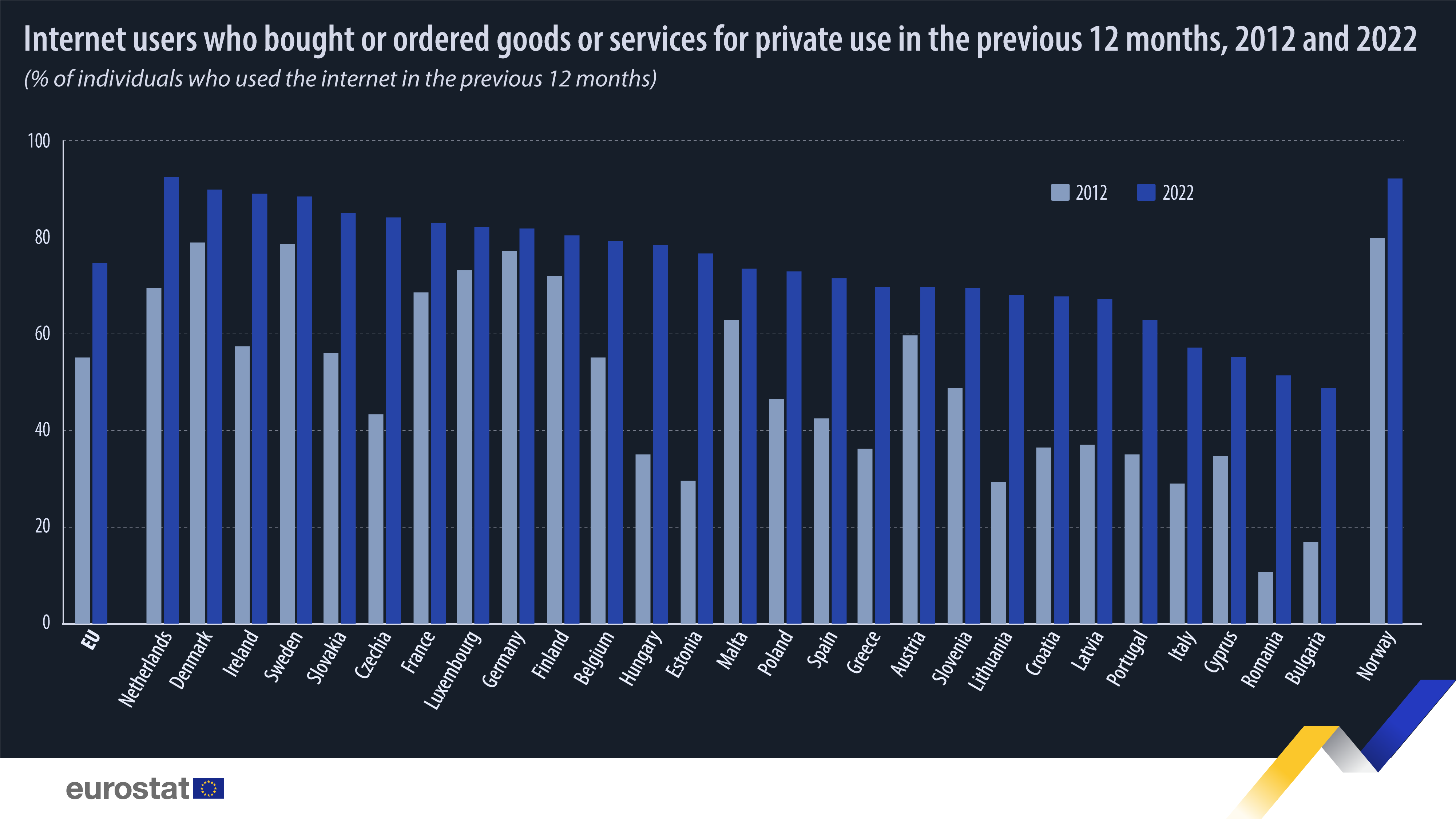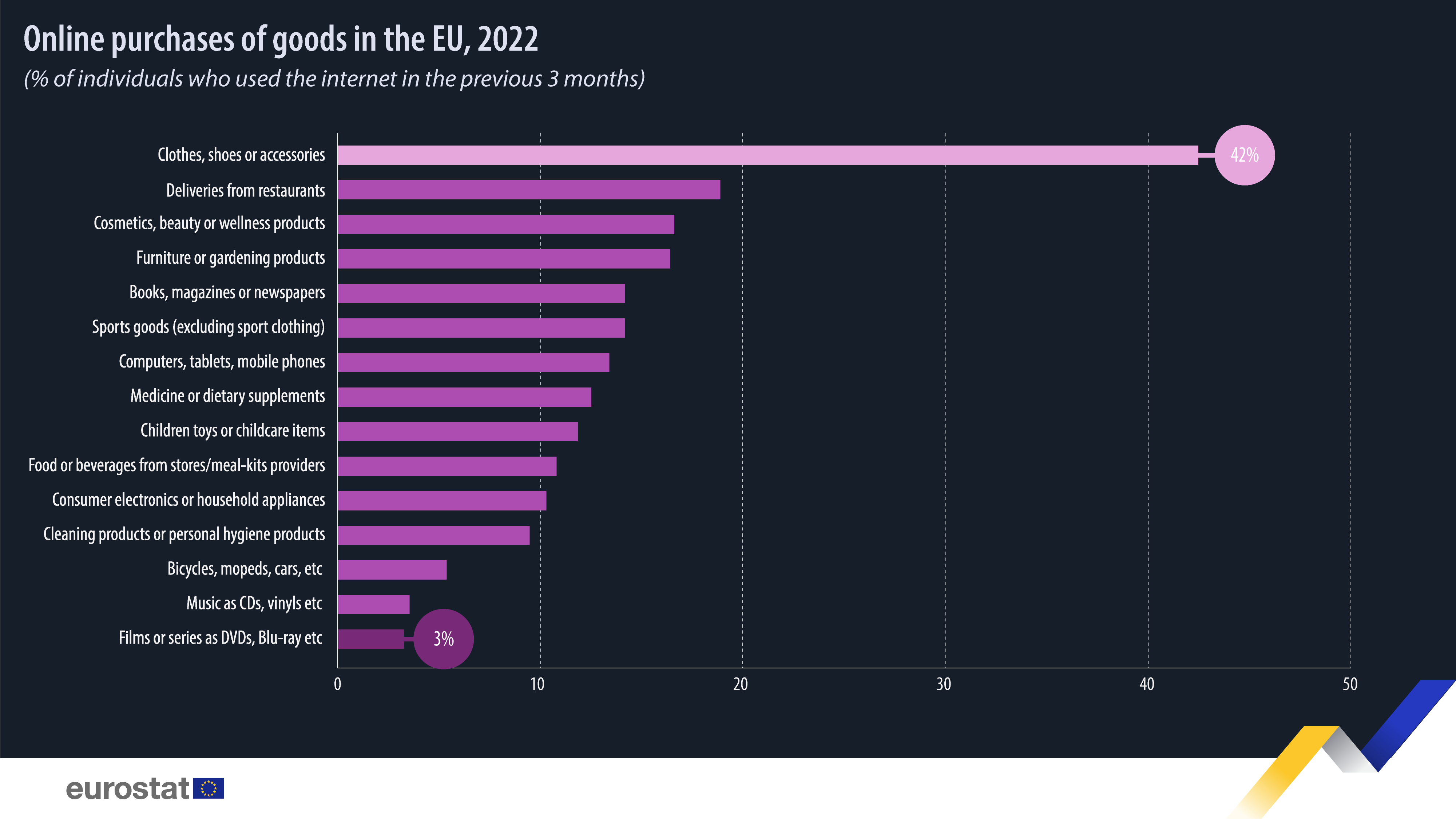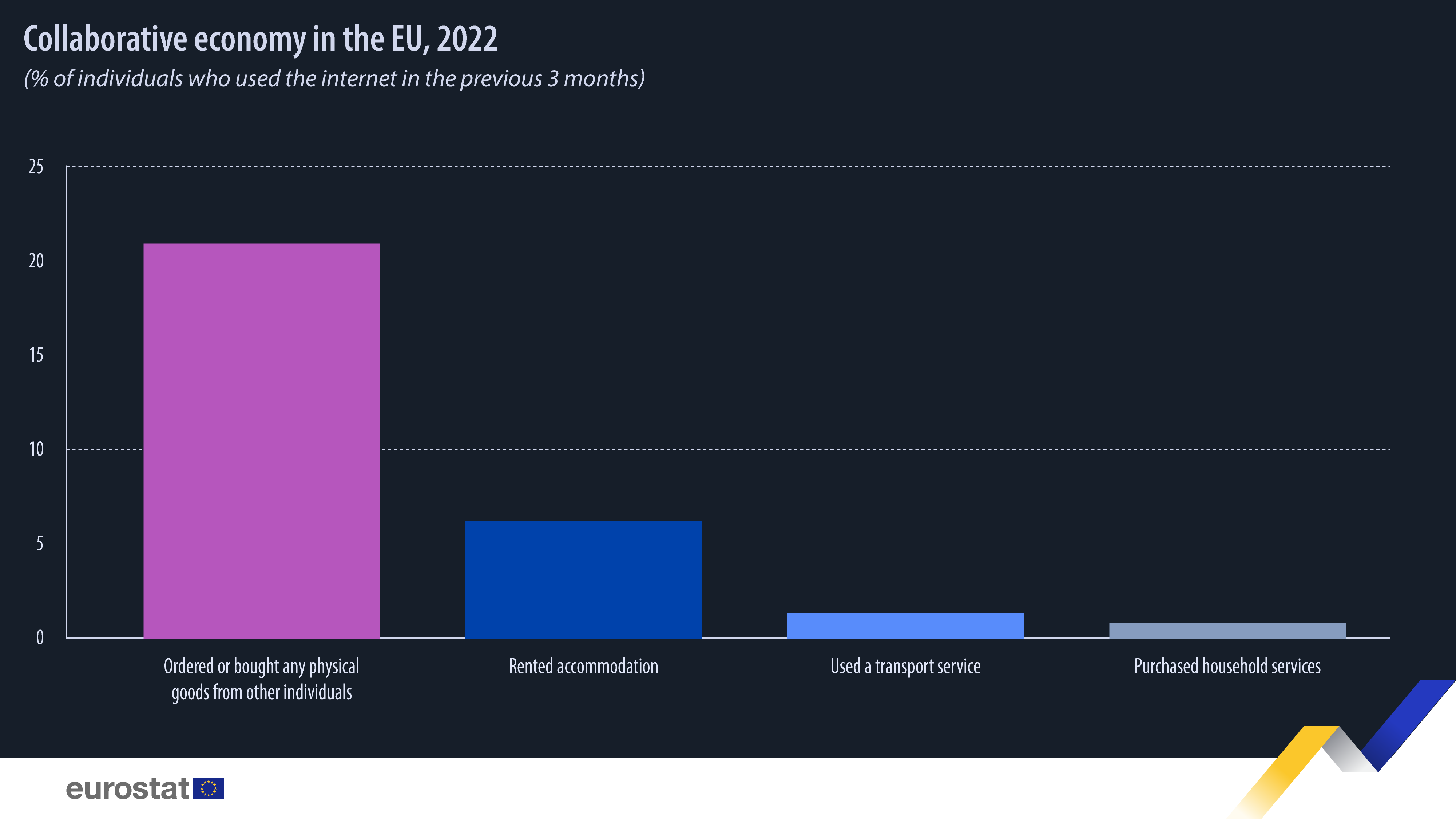March 2, 2023
Online shopping continues to grow in the EU, as data from the latest annual survey on the use of ICT in households and by individuals shows.
In 2022, 91% of people aged 16 to 74 in the EU had used the internet, 75% of whom had bought or ordered goods or services for private use. The proportion of e-shoppers grew from 55% in 2012 to 75% in 2022, an increase of 20 percentage points (pp).
The highest shares of internet users who bought or ordered goods or services over the internet in 2022 were recorded in the Netherlands (92%), Denmark (90%) and Ireland (89%). On the other hand, fewer than 50% had shopped online in Bulgaria (49%).
Between 2012 and 2022, the growth was particularly significant in Estonia (+47 pp), Hungary (+43 pp), Czechia and Romania (+41 pp).
Clothes, shoes and accessories: most common online purchase
In 2022, the most common online purchases of goods were clothes (including sports clothing), shoes or accessories (ordered by 42% of internet users). Following wearables, the top 5 most common online purchases of physical goods were completed by deliveries from restaurants, fast-food chains and catering services (19%), cosmetics, beauty or wellness products (17%), furniture, home accessories or gardening products (16%), and printed books, magazines or newspapers and sports goods (excluding sports clothing) (both 14%).
Purchase of physical goods above the demand for services
The collaborative economy opened up a new way of exchanging goods and services through digital technologies.
In 2022, among internet users in the EU, 21% used collaborative economy platforms to order or buy physical goods from other individuals, while 6% rented accommodation, 1% used a transport service and below 1% ordered household services via such platforms.
Individuals aged 25-34 years and 35-44 years had a higher-than-average propensity for buying goods from other private sellers in 2022 with a share of 29% of internet users each.
The importance of online platforms to book, for instance, rented accommodation was recently also observed via the experimental statistics on this topic, showing booking levels in 2022 that exceeded the pre-pandemic years, whereas tourism in more traditional types of accommodation was still lagging a bit behind.
Source: Eurostat
Legal Notice: The information in this article is intended for information purposes only. It is not intended for professional information purposes specific to a person or an institution. Every institution has different requirements because of its own circumstances even though they bear a resemblance to each other. Consequently, it is your interest to consult on an expert before taking a decision based on information stated in this article and putting into practice. Neither Karen Audit nor related person or institutions are not responsible for any damages or losses that might occur in consequence of the use of the information in this article by private or formal, real or legal person and institutions.









